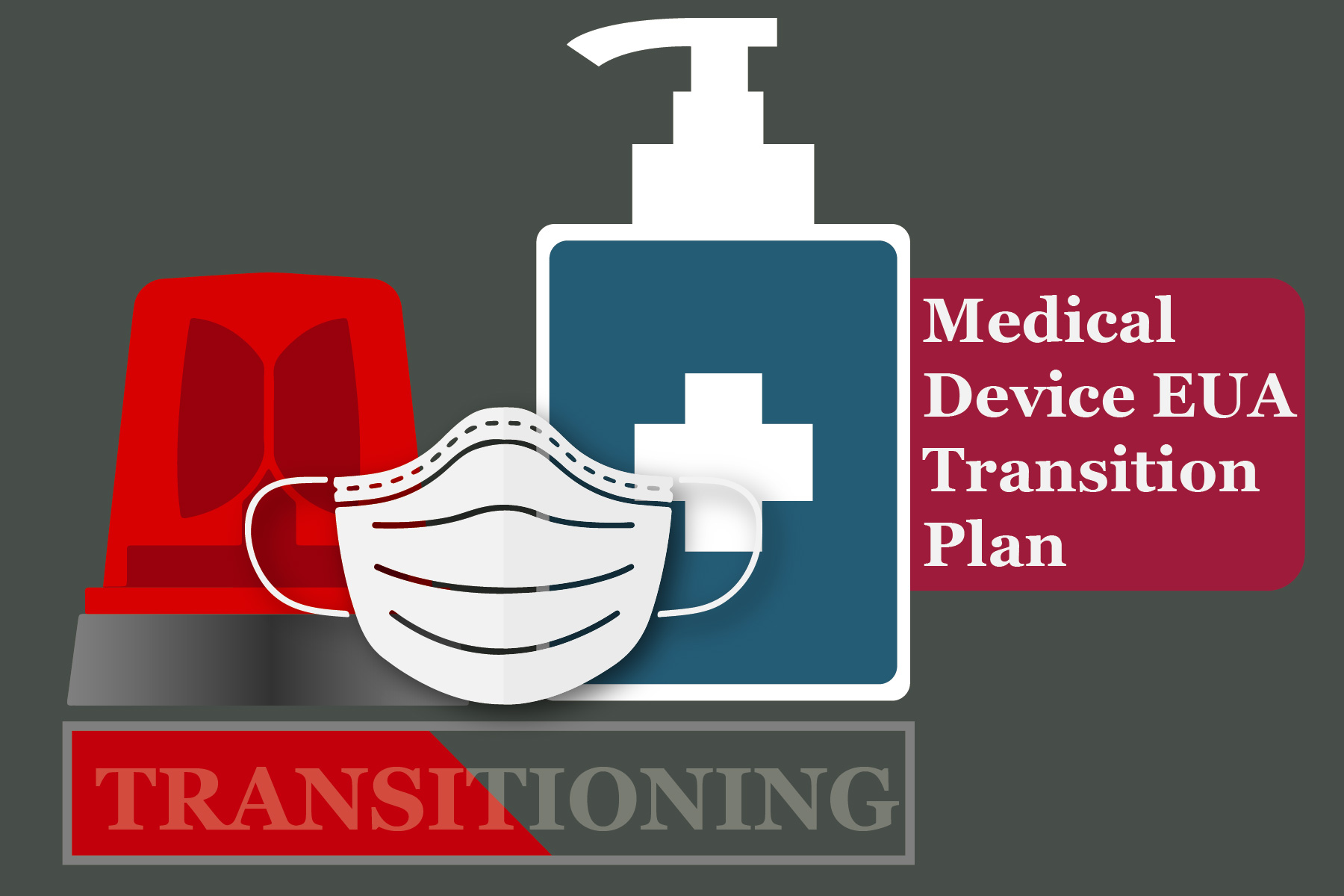Now more than ever, the Emergency Use Authorization (EUA) pathway for medical devices has become a popular topic. Due to the COVID-19 pandemic, there is an unprecedented number of EUA devices on the market, with many products being manufactured by companies new to the medical device industry. With so many first-time device firms having their product on the market under an EUA, it has left many people questioning what will happen to these products when the pandemic and the EUA’s end. Even for seasoned manufacturers, the transition from an EUA device to a fully cleared device (through a 510k, for example) may not be so simple.
When an EUA for a device ends, it means that the product must go through a traditional premarket review like a 510k or De Novo to be able to remain on the market. EUA’s are temporary authorizations, only in effect for the duration of the declaration, but can be revoked sooner if determined by the FDA. Typically, devices under an EUA only have to comply with a limited version of what the normal regulatory requirements dictate. For example, devices under an EUA do not have to fully comply with design controls, pre-market clinical studies, and even cGMP’s when given a waiver.1 Typically, companies are expected to work towards complying with these regulatory requirements during their EUA period, so when it ends they are ready for a premarket submission. Amidst the pandemic, the priority was more on getting as many products on the market as soon as possible under an EUA, and less on making sure these devices had the regulatory foundation to support a transition after the public health emergency ends.
In anticipation of what is expected to be a rocky transition period when the EUA’s eventually come to an end, the FDA has slated a draft guidance for FY2021 titled “Transition Plan for Medical Devices Distributed Under Enforcement Policies or Emergency Use Authorization During the COVID-19 Public Health Emergency.”2 According to CDRH leadership, they are aware that a post-pandemic transition plan (likely spanning many months) is necessary to ensure there is not a complete upheaval of the industry. This draft guidance should give industry stakeholders insight as to timelines and expectations when it comes to the “gradual restoration of the typical requirements”.3
If you have a medical device under an EUA and are not sure how to prepare for a transition period when the temporary authorizations are lifted, EMMA International has a team of regulatory experts who can guide you. Give us a call at 248-987-4497 or email info@emmainternational.com to see how we can help!
1FDA (Feb 2020) Transitioning Diagnostics from Emergency Use Authorization to Marketing Applications retrieved on 10/27/2020 from: https://mdic.org/wp-content/uploads/2020/02/Transitioning-Diagnostics-from-Emergency-Use-Authorization-to-Market-Applications.pdf
2FDA (Oct 2020) CDRH Proposed Guidances for Fiscal Year 2021 retrieved on 10/27/2020 from: https://www.fda.gov/medical-devices/guidance-documents-medical-devices-and-radiation-emitting-products/cdrh-proposed-guidances-fiscal-year-2021-fy-2021
3McCarty (Sep 2020) Maisel: FDA developing plans for EUA devices for post-pandemic review retrieved on 10/27/2020 from: https://www.bioworld.com/articles/498409-maisel-fda-developing-plans-for-eua-devices-for-post-pandemic-review






